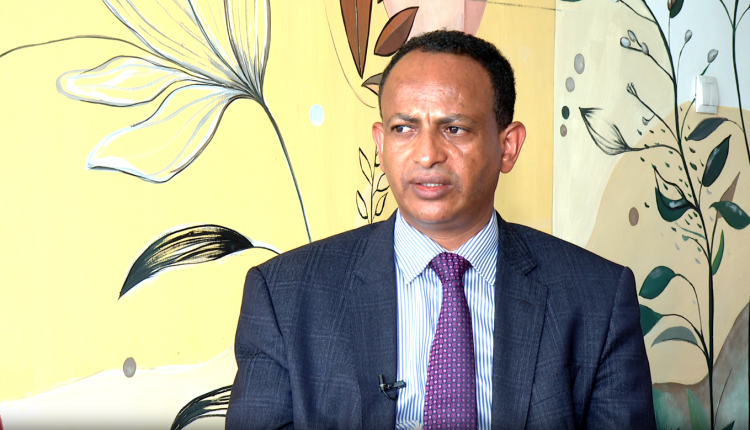Ethiopian Diaspora driving innovation and economic growth, says EAS DG
Addis Ababa, July 3, 2025 (FMC) — The Director General of the Ethiopian Diaspora Service, Ambassador Fitsum Arega, has emphasized the growing influence of the Ethiopian diaspora in advancing the country’s innovation ecosystem and accelerating national economic development.
Speaking on the latest developments in diaspora engagement, Ambassador Fitsum highlighted the community’s increasing contributions—particularly through foreign currency inflows and strategic partnerships—as a critical asset to Ethiopia’s ongoing transformation.
He attributed part of this success to the second phase of the Homegrown Economic Reform Program, which, he said, has played a vital role in improving financial flows. By redirecting remittances away from informal channels into legal financial systems, the reforms have enhanced transparency and efficiency in currency transactions.
“That’s a big win for the diaspora,” said Ambassador Fitsum. “Now they can support their families more securely and benefit from better exchange rates.”
As a result of these measures, Ethiopia’s remittance inflows reached 5.1 billion USD this year, a sharp increase from 4.4 billion USD last year. Ambassador Fitsum credited this growth to improved regulatory frameworks and expanded diaspora participation.
He also pointed to fruitful partnerships with global institutions such as the International Organization for Migration (IOM) and Deutsche Gesellschaft für Internationale Zusammenarbeit (GIZ), which have further bolstered diaspora engagement and opened new investment channels for Ethiopians living abroad.
Beyond institutional collaboration, Ambassador Fitsum recognized the independent efforts of diaspora members—particularly in the health sector. One standout example is the “Heart Attack Ethiopia” initiative, where medical professionals from abroad travel to Ethiopia every three months to deliver specialized care, train local practitioners, and donate essential medical equipment—ensuring both skill transfer and technological advancement.
He also shared recent examples of diaspora contributions in other fields, including hospitality and tourism.
“Just last week,” he noted, “renowned chef Marcus Samuelsson was training students at the Hotel and Tourism Institute in Addis Ababa.”
Samuelsson’s Addis Ababa restaurant, he said, reflects a broader trend of diaspora-led innovation in Ethiopia’s hospitality industry.
Diaspora university lecturers are also playing a key role in academic capacity-building, while entrepreneurs are investing in high-growth sectors. One of the most dynamic areas, Ambassador Fitsum stated, is FinTech. Over 20 FinTech companies have been registered by the National Bank of Ethiopia, many of them diaspora-led.
“These companies are driving mobile money, digital payments, and other electronic financial services,” he told ENA.
In the telecommunications sector, diaspora professionals are actively involved in running call centers, managing FinTech platforms, and overseeing digital finance operations.
Ambassador Fitsum also noted that highly skilled diaspora experts are contributing to institutional development, including the formation of the Ethiopian Securities Exchange (ESX), the development of a national capital markets authority, and the design of long-term financing tools to support economic growth.
He concluded by underscoring that the collective efforts of the Ethiopian diaspora are not only accelerating economic modernization but also helping to build strong, sustainable institutions essential for the country’s future.

